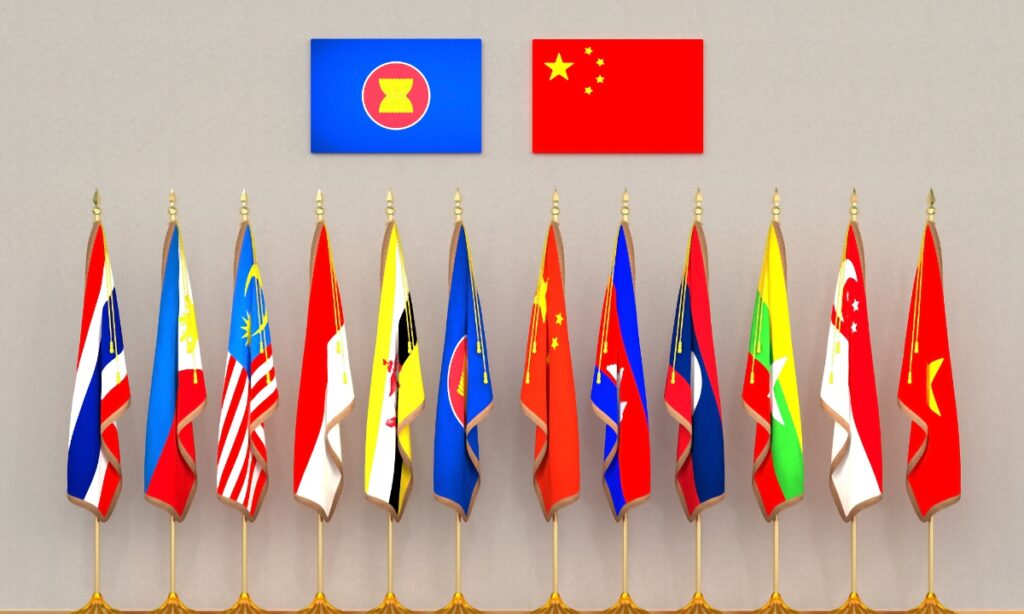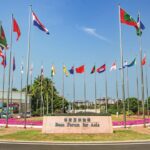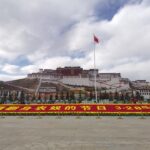Leaders from many countries around the globe are heading to China for the annual Boao Forum and official visits, as the Chinese Foreign Ministry on Monday confirmed that multiple foreign leaders including prime ministers from Singapore and Malaysia will attend the significant economic event and will pay official visits to China.
As Europe is still suffering from the ongoing geo-political crisis and the US financial system is bringing increasing uncertainties and risks to Western economic recovery this year, the world is placing greater hope on China to drive the post-pandemic recovery in 2023 as China is the only major world economy that has resilience, potential and certainty, said experts.
Therefore, it’s very natural for world leaders, including the key ASEAN members as well as the major EU members like Spain and France, to be eager to visit China to reinforce ties and seek more possibilities for cooperation, and it’s impossible for Washington to stop them from engaging China or even force them to decouple with China, especially when the US economy is still messy, analysts noted.
According to Mao Ning, spokesperson of the Chinese Foreign Ministry on Monday, Chinese Premier Li Qiang will attend the opening ceremony of the Boao Forum for Asia Annual Conference 2023 and deliver a keynote speech at the forum’s invitation in Hainan on March 30.
Singapore’s Prime Minister Lee Hsien Loong, Malaysia’s Prime Minister Datuk Seri Anwar Ibrahim, Spain’s Prime Minister Pedro Sánchez, Prime Minister of Cote d’Ivoire Patrick Achi and Managing Director of the International Monetary Fund (IMF) Kristalina Georgieva will attend the annual conference at the forum’s invitation.
At the invitation of Premier Li, prime ministers of Singapore, Malaysia and Spain will pay an official visits to China on the margins of the annual conference.
For China, 2023 is a “year of beginning,” experts said. Politically, the year is the first year after the 20th National Congress of the Communist Party of China, and China has elected a new leadership team for its State Council, China’s cabinet. Economically, this year is the first year for China to ease its strict epidemic control policy and optimize its COVID-19 response, and China has announced its economic target and its focus to recover its economy, and many international economic organizations and institutions have made confident predictions on China’s economic growth this year.
Therefore, it’s very necessary for the heads of the governments from other countries to build up communication and working relations with the new Chinese premier as soon as possible, analysts said. This is important for China and them to better connect with each other, and to jointly connect with regional integration and work for the hope of recovery and development for long-term, experts noted.
China-ASEAN partnership
ASEAN Secretary-General Kao Kim Hourn has already started his official visit to China from March 24 to 29. During the visit, Kao will also attend the Boao Forum for Asia Annual Conference 2023. Chinese State Councilor and Foreign Minister Qin Gang met with Kao on Monday.
Qin said at the meeting that China’s internal and external policies have high stability and continuity, and China’s efforts to realize the national rejuvenation based on the Chinese modernization will bring more stability to regional peace and tranquility, and provide stronger impetus to regional development and prosperity.
Kao said China is ASEAN’s good partner, and the ASEAN is willing to further strengthen cooperation with China in all fields, and to speed up the negotiation for the “Free Trade Zone 3.0” and to speed up negotiation on the Code of Conduct in the South China Sea, and to jointly safeguard regional peace and stability, to promote the common prosperity for the region.
Before Singapore and Malaysia, leaders of other ASEAN members like Vietnam, the Philippines and Cambodia, have paid frequent visits to China in the past few months, which shows how much they value relations with China, Ge Hongliang, director of the China-ASEAN Maritime Security Research Center at Guangxi University for Nationalities, told the Global Times on Monday.
For Southeast Asian countries, economic recovery in the post-epidemic era and the stability of regional geopolitics are their top concerns and core tasks at the moment, he said. “Cooperation with China clearly helps these issues move forward, so relations with China are particularly valued.”
Singapore is “the brain of the ASEAN,” said experts, so its attitude and stance to some extent reflects the strategic mindset of the region. Singapore always attaches great importance to China, as Lee is one of the foreign leaders that have paid the most visits to China. According to the CNA, this is Lee’s first official visit to China since the pandemic.
During Lee’s trip, the concept of multilateral cooperation and win-win cooperation is expected to be re-emphasized, Ge told the Global Times. “The two sides are likely to exchange views on the current situation in Asia and offer to strengthen cooperation in the economic field. Such cooperation will, to some extent, set an example for cooperation between China and other ASEAN countries.”
Lee told the China Central Television in an interview on Friday that the rest of the world needs to recognize that China of today is not what it was before, and accept that it now plays a bigger role on the global stage.
Singapore sees the China-proposed Belt and Road Initiative (BRI) as a way for China to contribute to the development of the region and integrate into a regional network of cooperation and interdependence, said the Singaporean Prime Minister.
“The region needs infrastructure, the infrastructure needs financing. China is capable of doing that – of building infrastructure, it can also help to provide the financing, it can also develop the trade and economic links with the countries in the region,” Lee said. The BRI provides a framework where this can be done.
Singapore could contribute to the initiative by being the place where projects are evaluated and financing is obtained. As a centre for arbitration and mediation, Singapore, with its many international law firms, can also be where countries on Belt and Road schemes arbitrate issues or find legal expertise, Lee said.
More united
When other countries increase their engagements with China or seek further cooperation with China, the US always gets anxious, and Washington just arrogantly asks other countries, including ASEAN members and many EU members, to join its containment against China and even force others to decouple with China, which means cutting off themselves with the biggest and most vibrant market of the world, said Li Haidong, a professor at the Institute of International Relations at the China Foreign Affairs University.
But now, many leaders of the ASEAN and the EU are going to or have already arrived in China, and this is a strongest proof that the US is unable to stop other countries from connecting with China, especially when Washington brings no hope but only concerns to the development and security of the world, Li Haidong said.
China is the biggest trade partner to the ASEAN and also a major trade partner to many EU countries. Observers said they are looking forward to seeing what kind of new ideas will come out from the discussion between world leaders in the Boao Forum this year, and what and how China will further contribute to the global recovery and development, as well as world peace.
(Global Times)




